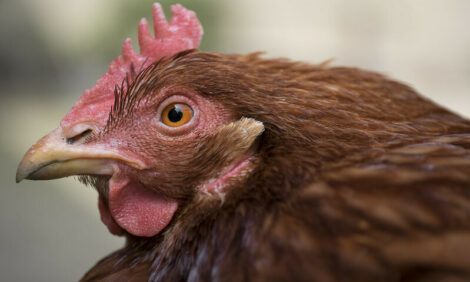



University of Guelph receives funding to expand veterinary training
The expansion should help address worker shortagesIn a recent press release, the University of Guelph and Lakehead University said they are thrilled by the provincial government’s announcement to invest in expanding veterinary training in the province of Ontario in Canada.
The investment includes critical support for a new, collaborative veterinary medicine program – increasing the number of veterinary spaces for the first time since 1988 and adding incentives to address critical shortages in veterinary care.
The Collaborative Doctor of Veterinary Medicine Program in Rural and Northern Community Practice will support the economic growth of Ontario’s agri-food sector by expanding the number of veterinarians trained in Ontario who are practicing within Northern, rural and Indigenous communities, ensuring livestock producers have the necessary veterinary services needed to expand operations.
The Veterinary Incentive Program will provide loan assistance to recently graduated veterinarians to practice in underserviced areas and support large animal care.
Dr. Charlotte Yates, resident and vice-chancellor of the University of Guelph expressed her sincere gratitude to the government for its support.
“By combining the unique strengths of the University of Guelph and Lakehead University, the Ontario Government is supporting a new and innovative approach to training veterinarians. The collaborative Doctor of Veterinary Medicine program will increase the number of veterinarians trained in Ontario for the first time in a generation and help address workforce shortages. By incentivizing large-animal veterinarians in underserviced areas, the government is supporting student pathways for well-paying jobs in a high-demand sector,” Yates said.
Dr. Moira McPherson, President and Vice-Chancellor of Lakehead University, echoed this message thanking the Ontario Government for its generous support of this timely initiative.
“On behalf of Lakehead University and our partners and stakeholders in Northern Ontario, I want to thank the Government of Ontario for seeing the vision and investing in the Collaborative Doctor of Veterinary Medicine Program in Rural and Northern Community Practice,” McPherson said.
“Working with our partners in government and the agri-food industry, we will be able to provide much-needed additional veterinary care to the vital and growing agri-food sector in Northern, rural, and Indigenous communities across Ontario,” she added.
The Ontario Veterinary College (OVC) has been at the forefront of animal care since its founding in 1862 and is currently ranked first in Canada and fifth globally. What OVC brings to the partnership is a wealth of faculty expertise, research excellence, and an exceptional record of training current and future generations of veterinarians.
The Doctor of Veterinary Medicine is an accredited professional program that is delivered through OVC. As Ontario’s only veterinary college, OVC trains nearly one-third of all Canadian-educated veterinarians and provides clinical services for over 20,000 pets and large animals annually.
Lakehead University is a leading comprehensive and research-focused institution that uniquely understands the needs of Northern Ontario, access to higher education, and aligning the University’s priorities with the region’s socio-economic needs while ensuring its students achieve their goals.
With campuses in Thunder Bay and Orillia, Lakehead University is developing the next generation of highly skilled leaders and future change-makers with the skills and experience required to address real-world problems.
The funding provided by the Ontario Government will help expand facilities in Guelph and build specialized labs and clinical facilities unique to veterinary science in the Thunder Bay region.









